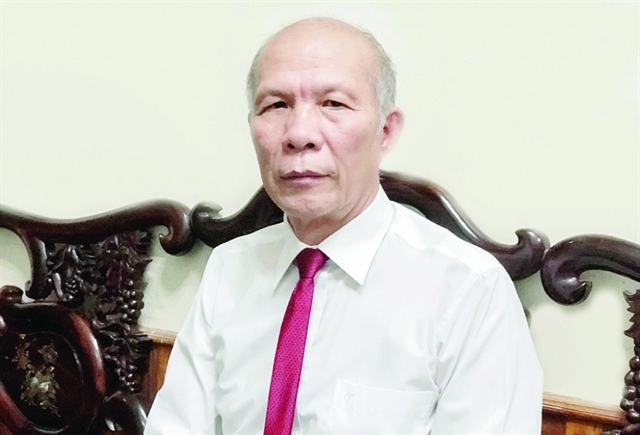.jfif) Opinion
Opinion

Associate Professor Đinh Trọng Thịnh, a senior lecture of the Academy of Finance speaks to Hải quan (Customs) online newspaper about the Government’s proposal to not increase the monthly basic salary for civil servants and public employees next year.

|
Associate Professor Đinh Trọng Thịnh, a senior lecture of the Academy of Finance speaks to Hải quan (Customs) online newspaper about the Government’s proposal to not increase the monthly basic salary for civil servants and public employees next year.
The Government has recently proposed to the National Assembly not to increase the basic salary in 2021 to reserve budget for COVID-19 pandemic prevention and control efforts while the national economy is facing many difficulties, leading to unstable State-budget revenue. What do you think of the proposal?
All salary reforms in all countries worldwide are implemented under normal conditions. When there are incidents or “shocks” in a country, the country must give priority to handle these.
Regarding the proposal, I think it is just an urgent measure to the current situation. I think the Government itself did not want to take the measure.
So far this year, when the COVID-19 pandemic hit the country, it has cause a strong impact on the national economy. Our country has successfully implemented many measures to fight the pandemic. However, the economy has been growing slowly.
Additionally, the Government has had to spend a lot of money related to medical supplies as well as measures to support both local people and businesses to overcome the negative impacts.
Notably, the State budget lately had to spend a large amount of money to help natural disaster-hit localities. Therefore, I think the proposal of not raising the basic salary in 2021 will be welcomed by the majority of people in the country.
However, although the economy has slow growth (the growth in the first nine months of this year still reaches 2.12 per cent and the whole year is estimated to reach 2-3 per cent), prices have not increased much in the market. The Government also operates good social-welfare policies. Employees nationwide should sympathise with the Government.
I believe that Việt Nam will overcome the pandemic and recover faster than other countries because we suffer less from the pandemic compared to elsewhere. Currently, the Government should give priority to supporting the production and business activities to revive the economy. When the economy has been stabilised, we will accelerate the salary-reform plans. The roadmap for salary increase and reform can be delayed but not eliminated.
What should the Government do to ensure both social security and revenue-expenditure structure for the State budget?
Inflation will still be there and it will "erode" income of workers in the long-term. The Government is advised to consider prompt measures to ensure the lives of civil servants, especially retired people.
First of all, the Government should manage to stabilise the macro economy because this is an opportunity for businesses to grow and develop, creating resources for the State budget. It is also advised to curb inflation. Government must stabilise prices for all essential goods.
Especially, the Government should also make public the salary-reform plan for people so that they can make their own calculations for their daily expenses.
The basic salary must be the main income ensuring livelihoods for workers and their families. Paying the salary reasonably is believed to be an investment in human-resource development, creating a driving force to improve labour productivity and working efficiency for employees as well as making an important contribution to the implementation of social progress.
Second, the new salary-reform policy should promote advantages, overcome shortcomings of the current policy, meet international-integration requirements and have a suitable plan to socio-economic development of the country.
Do you think this is the time for the State to strengthen the implementation of downsizing its staff and save the regular expenditure for its budget?
Yes, it is. Regarding this basic salary story, the first solution is the salary reform and the last solution is streamlining the State’s staff levels. Currently, although the regular expenditure has been reduced to about 62 per cent, the State apparatus is still too cumbersome, costly and ineffective. People still think that there are some civil servants working ineffectively.
Downsizing the State’s staff structure is really necessary while the State budget is facing numerous difficulties due to the impact of both the pandemic and natural disasters. It is the time for ministries and agencies to seriously and drastically implement the task. Then, they should operate effectively with the downsized apparatus. It will contribute to changing the image of civil servants in the eyes of the people.
The State should pay the salary of civil servants, public employees and armed forces according to their job positions and titles in accordance with State resources to ensure reasonable correlation with the wage in the labour market in the future. — VNS




